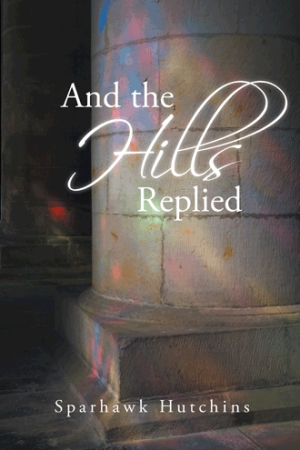And the Hills Replied
Scottish mythology and time travel mix with meticulous storytelling.
And the Hills Replied is a story of one man’s strange encounter during a 2005 vacation in Scotland to pay homage to his ancestors, where he stumbles upon a missing link in his genealogy. Sparhawk Hutchins’s historical fantasy is a whirlwind adventure into the past.
A mix of Scottish mythology and history, this debut novel opens with fifty-eight-year old Sparhawk, who is determined to find out whether he truly descended from King Robert I, and to learn more about Sir Thomas, who is the missing Middle Ages link in his genealogical history. Sparhawk comes across some letters written in 1939 by one of his relatives. In them, he finds stories about Queen of Scotland Elizabeth de Burgh and her mysterious time-traveling adventures.
Hutchins opens each chapter with poetry that gives a foretaste of what lies ahead, which is an appreciated extra touch to this captivating narrative. While Sparhawk is featured as the narrator at the beginning and end of the novel, many of the interim chapters vacillate between first- and third-person voices to describe Elizabeth’s time-travel encounters. Her journeys take her from the Tower of Babel to the era of Moses and Pharaoh, then fast-forwarding to the Middle Ages, and back to 1939 before the story comes full circle to 2005. Hutchins keeps his story line moving and very interesting by grouping segments within chapters, utilizing changes in narrative voice, and mixing storytelling with the richness of Scottish mythology and history.
Although Hutchins’s novel centers on Scota’s Stone (known over the centuries as the stone used in the coronation of the monarchs of Scotland), he includes a plethora of historical characters that tie in with this epic artifact. For example, Niul, the Prince of Scythia, who marries Pharaoh’s daughter Scota—the mythological founders of Ireland and Scotland, respectively—and King Edward, who captures the stone and keeps it under his throne. Hutchins also meticulously integrates apt imagery of biblical times and the Middle Ages throughout his storytelling. Whether he’s describing the lush and verdant hills of Scotland, hideous battle scenes, characters’ clothing, or specific character traits, Hutchins’s depictions clearly portray each time period.
Hutchins has produced a novel that is not only a wonderful read for those who love historical fiction, but also a great addition to Scottish mythology and history collections.
Reviewed by
Anita Lock
Disclosure: This article is not an endorsement, but a review. The publisher of this book provided free copies of the book and paid a small fee to have their book reviewed by a professional reviewer. Foreword Reviews and Clarion Reviews make no guarantee that the publisher will receive a positive review. Foreword Magazine, Inc. is disclosing this in accordance with the Federal Trade Commission’s 16 CFR, Part 255.


